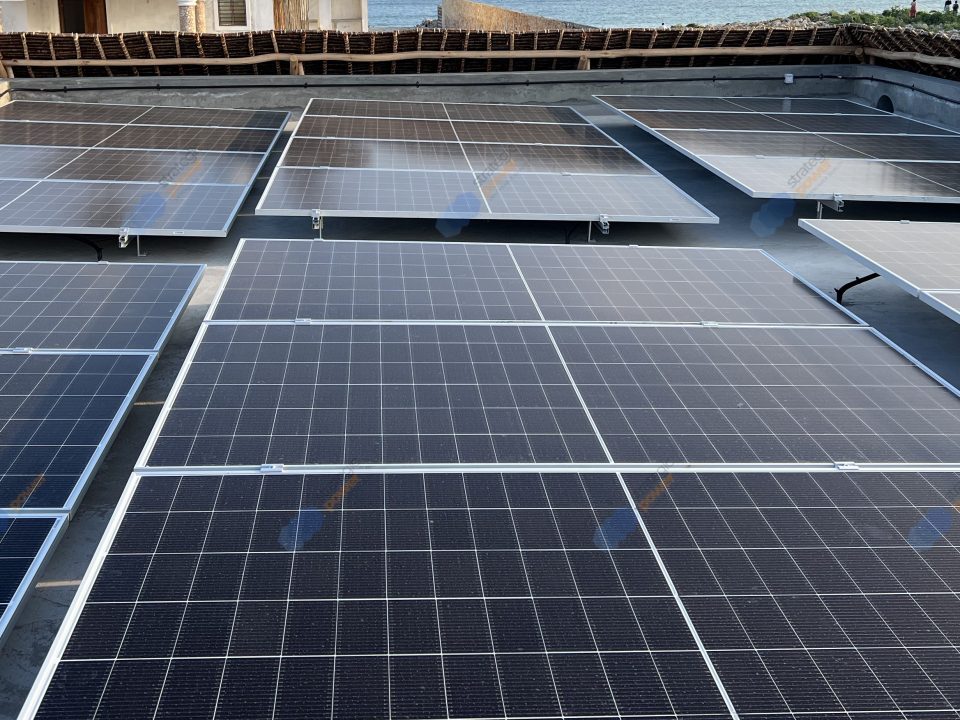
Powering the Future: How Solar Energy is Transforming Africa’s Energy Landscape
February 3, 2025
Affordable Solar Panels in Kenya: A Guide to Cost and Installation
February 5, 2025Kenya is rapidly emerging as a leader in renewable energy adoption, with solar energy playing a pivotal role in the country’s transition to sustainable power. As the demand for clean energy grows, the Kenyan government, alongside private sector players, has introduced various solar energy incentives and policies to encourage investment and adoption. If you’re considering switching to solar power or investing in solar energy projects, here’s everything you need to know about the incentives and policies in Kenya.
Government Commitment to Renewable Energy
Kenya’s Vision 2030 and the National Energy Policy highlight the government’s commitment to increasing the share of renewable energy in the country’s energy mix. Solar energy is a key focus area, with policies aimed at reducing reliance on fossil fuels and expanding access to electricity, especially in rural areas.
The Energy Act of 2019 provides a legal framework for promoting renewable energy, including solar power. It encourages public-private partnerships and offers guidelines for the development, distribution, and use of renewable energy resources.
Tax Incentives for Solar Energy Adoption
To make solar energy more accessible, the Kenyan government has introduced several tax incentives:
Zero-Rated VAT on Solar Equipment
Solar panels, inverters, batteries, and other solar-related equipment are exempt from Value Added Tax (VAT), making them more affordable for consumers.
Import Duty Exemptions
Solar equipment imported into Kenya enjoys reduced or zero import duty, lowering the overall cost of installation.
Corporate Tax Reductions
Companies investing in renewable energy projects, including solar, may benefit from reduced corporate tax rates under the Special Economic Zones (SEZ) program.
Feed-in Tariffs (FiTs) for Solar Energy
Kenya’s Feed-in Tariff policy encourages the generation of solar energy by allowing individuals and businesses to sell excess power back to the national grid. This not only provides an additional income stream for solar adopters but also promotes the growth of decentralized energy systems.
Energy Regulatory Commission (ERC) sets the rates for FiTs, ensuring fair compensation for solar energy producers. This policy has been particularly beneficial for large-scale solar farms and commercial entities.
Net Metering Policy
The net metering policy allows solar energy users to offset their electricity bills by feeding surplus power generated from their solar systems into the grid. This is especially advantageous for households and businesses with rooftop solar installations.
By reducing electricity costs and providing a return on investment, net metering has become a popular incentive for solar adoption in Kenya.
Funding and Financing Opportunities
Several funding programs and financing options are available to support solar energy projects in Kenya:
Kenya Green Energy Programme
Supported by international organizations, this program provides affordable financing for solar installations in rural and underserved areas.
World Bank and AfDB Funding
The Kenyan government has partnered with international financial institutions to secure funding for large-scale solar projects, such as the Lake Turkana Wind and Solar Power Project.
Rural Electrification and Off-Grid Solar Solutions
The Rural Electrification and Renewable Energy Corporation (REREC)** is tasked with expanding electricity access to remote areas using renewable energy sources, including solar. Off-grid solar solutions, such as solar mini-grids and standalone systems, are being deployed to power schools, health centers, and households in rural Kenya.
Environmental and Social Benefits
Kenya’s solar energy policies are not just about economic incentives; they also aim to address environmental and social challenges. By reducing greenhouse gas emissions and deforestation (often caused by charcoal use), solar energy contributes to climate change mitigation. Additionally, solar power improves energy access, empowering communities and driving economic growth.
Challenges and the Way Forward
While Kenya’s solar energy incentives and policies are commendable, challenges such as high upfront costs, lack of awareness, and regulatory bottlenecks still exist. To overcome these, the government and private sector must continue to collaborate on awareness campaigns, capacity building, and streamlining approval processes for solar projects.
Conclusion
Kenya’s solar energy incentives and policies are creating a conducive environment for the growth of renewable energy. From tax breaks and feed-in tariffs to innovative financing models, these measures are making solar power more accessible and affordable for individuals, businesses, and communities.
By taking advantage of these opportunities, you can not only reduce your energy costs but also contribute to a greener, more sustainable future for Kenya. Whether you’re a homeowner, business owner, or investor, now is the perfect time to embrace solar energy and be part of Kenya’s renewable energy revolution.




